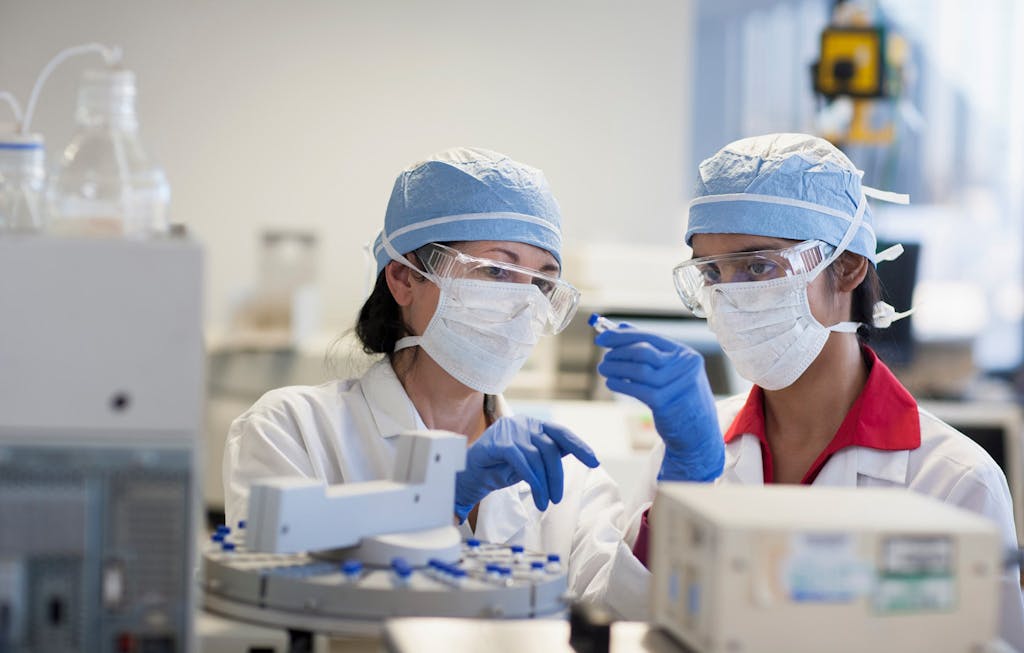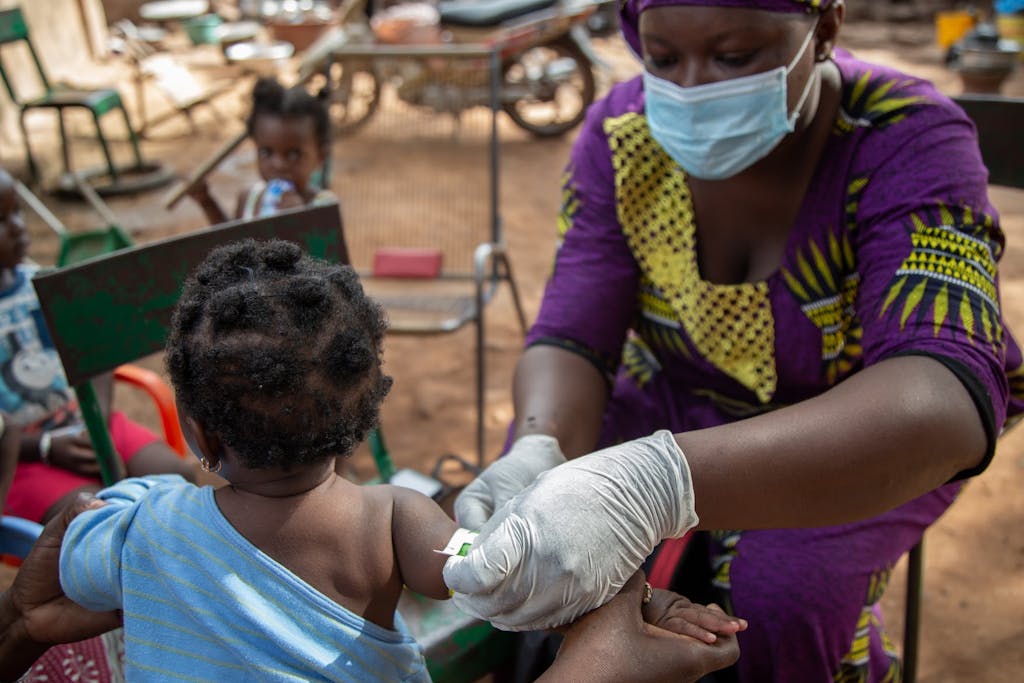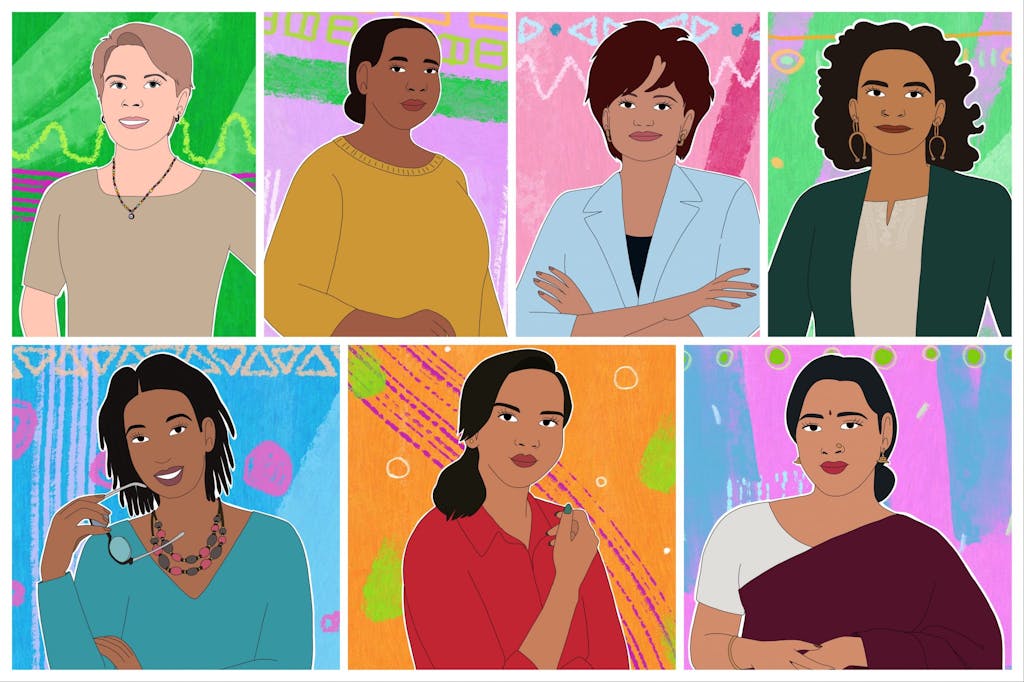The COVID-19 pandemic has overwhelmed health care systems around the globe and pushed health care workers past the breaking point. Emerging disease threats, coupled with a growing, aging population, will demand more trained health workers than ever before. Despite the essential role these frontline workers play, there is an expected shortage of 18 million health workers. It’s a gap that will urgently need to be filled to achieve the Sustainable Development Goals in low- and middle-income countries by 2030.
Any discussion about strengthening capacities to prevent, detect, and respond to future health threats — just like any discussion about achieving the SDGs — requires a focus on the vital role that frontline health workers play. And any discussion on supporting the needs of frontline workers needs to start with addressing gender gaps.

Research shows that gender discrimination, segregation, and stereotypes cluster women in lower status and lower-paid roles such as nursing, while men are more likely to work in higher-status, higher-paid roles such as performing surgery. Many women health workers must contend with unsafe work environments or face violence or sexual harassment, and many are excluded from decision-making. Women comprise 70% of the global health workforce but hold only 25% of the senior roles. And women shoulder the vast majority of home care for children, the sick, and the elderly — unpaid labor worth an estimated $1.5 trillion.
An analysis by the World Health Organization (WHO) and Women in Global Health summed it up succinctly: “In general, women deliver global health and men lead it.” The hardship is taking a toll on women: Recent studies found 43% of nurses in the United States and 36% of nurses in the United Kingdom are considering leaving the profession at a time when the world cannot afford to lose expert health workers. Such persistent, harmful gender inequity not only disadvantages women health workers but also weakens health systems, undermines global health security and impedes progress toward gender equality at all levels.

COVID-19 has only exacerbated these challenges. A forthcoming report from Women in Global Health estimates health worker deaths from COVID-19 to be as high as 500,000, with millions more suffering from COVID-19 symptoms or mental trauma or both. Access to COVID-19 vaccines remains perilously low in low- and middle-income countries: WHO data from 39 African countries shows that just 8% of all COVID-19 vaccine doses have gone to health workers. Health workers everywhere are exhausted and angry, many of them on strike or under attack, the targets of anti-vaccine misinformation campaigns.
Our partners at Women in Global Health, where I also serve on the Board of Directors, have illuminated this critical issue as they call for a new social contract for women health and social care workers. That will mean offering safe, decent, dignified jobs and working environments where women are recognized, heard, and compensated for their hard work. Women health workers must be empowered as local decision-makers and offered paths toward leadership. Solidarity is a first step. Breaking down the barriers to achieving gender equality in the health sector is essential to building back better from COVID-19.
As we push for these reforms, the United Nations Foundation was proud to partner with Women in Global Health to recognize seven accomplished women who are health professionals leading the way and giving us hope. These women, celebrated in the first-ever virtual Heroines of Health event, have overcome unimaginable challenges and taken inspiring action, remaining relentlessly committed to delivering quality care.

- Greisy Trejo, a nurse and mental health champion in Panama, connects Indigenous, migrant, LGBTQ+, and other vulnerable people with mental health services.
- Jane Njeri Kagwiria Kubai, a surgical theater assistant in Kenya, was formerly a security guard who now educates communities preventing the spread of COVID-19: “I know the pain of the patients and their visitors,” she said. “We talk, we pray, I encourage and console them.”
- Dr. Myrna Abi Abdallah Doumit, a nurse in Lebanon, led a courageous response to the Beirut blast in and after August 2020.
- Neha Mankani, a midwife in Pakistan, helps train and empower midwives.
- Ramatu Jallo, a community health worker in Sierra Leone, mobilized the COVID-19 Action Fund for Africa that has raised $20 million to provide more than 100 million pieces of personal protective equipment (PPE) to thousands of frontline health workers worldwide.
- Dr. Ruth Diriba, a doctor in Ethiopia, is working to close the gender gap in digital literacy.
- Dr. Vandana Gopikumar, a mental health champion in India, is working to break down stigmas around mental health and to support vulnerable women.
Their dedication and passion will help move the world toward a fairer health workforce. “No matter how high a mountain, it will never stop our community health workers from reaching the sick,” said Ramatu Jallo. “What we need is PPE. What we need is support from around the world.”
So let’s take a stand for heroines like Ramatu, and end gender inequality in health care and everywhere. It’s our best shot at strengthening our health systems to achieve a safer, healthier world.
Featured Photo: Blink Media–Gillian Soupe/ WHO






